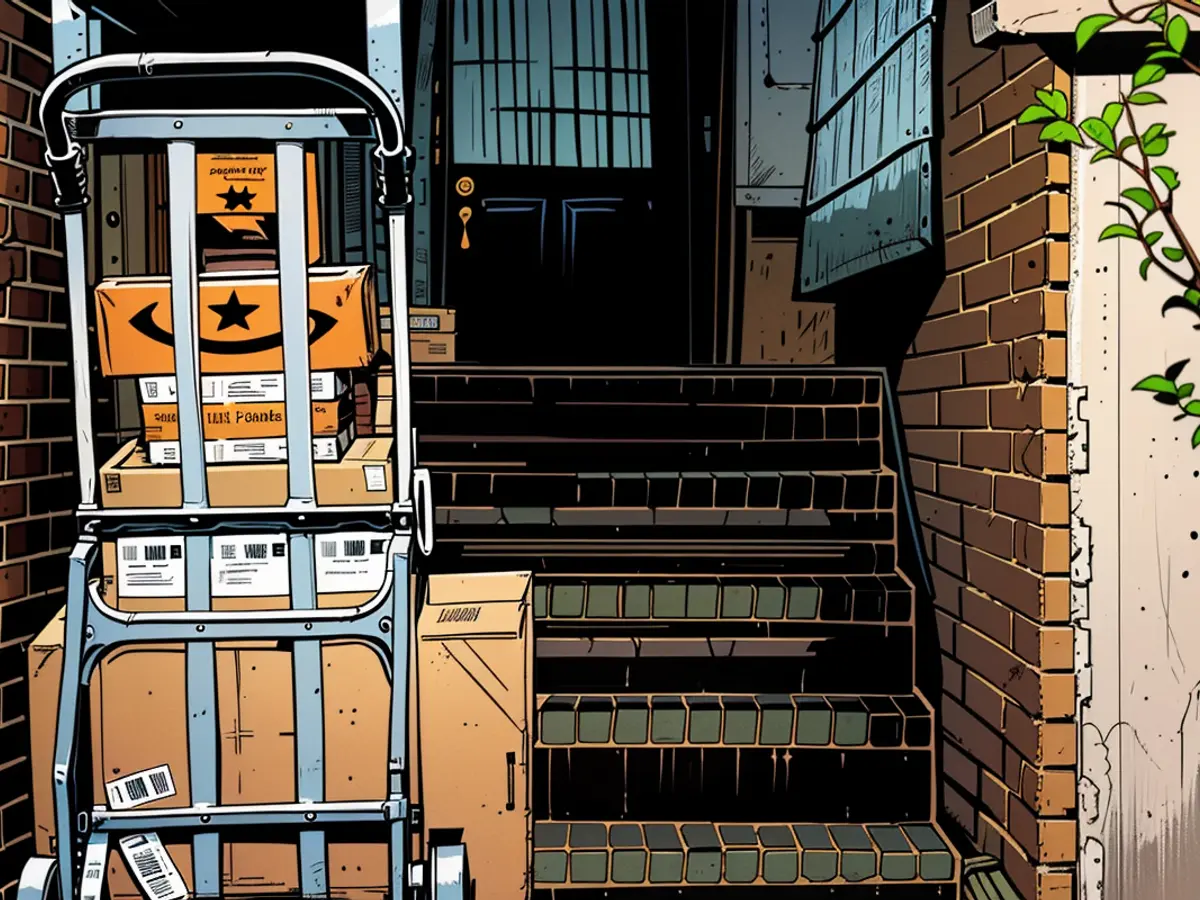Offered Assistance - Compromise reached on Postal Act reform by traffic light coalition
The legislative process for revamping the antiquated Postal Law is gaining momentum. On Monday, lawmakers from Germany's traffic light coalition gathered in Berlin and reached a consensus. The proposal to ban sub-subcontracting, which involves rewarding a contract to a third-party who then outsources the work to another party, has been abandoned. Instead, both factions are leaning on stringent control obligations to govern this issue.
Furthermore, the subcontractors are set to be required to log information on working hours. Authorities can then compare these data with the information gathered when handling parcels to identify any infractions of the Working Hours Act. This detail had previously been revealed by "Handelsblatt".
Another matter up for debate was whether packages weighing more than 20 kg should be restricted to just 2 parcels per delivery. However, the coalition negotiators reached an agreement that this rule will be the norm, with an exception for the use of appropriate assistance tools. When these tools are employed, single-person delivery will be permitted. What form these tools would take is set to be clarified by the SPD-led Federal Labor Ministry within six months in supplementary regulations.
According to Sebastian Roloff, member of the SPD in the Bundestag, "What's most crucial in the law is fortifying the protection of labor in the postal sector and instituting measures against exploitation in package delivery."
The Postal Law was initially enacted way back in 1998. It underwent its last significant overhaul when online shopping was still in its infancy, and letters played a vital role in the day-to-day communication of people. Since then, the landscape of communication and demands have evolved significantly - with letters fading into obscurity in the wake of emails and chat messages, and the number of packages consistently growing.
Reducing pressure on mail delivery
The German government's suggestion to ease pressure on postal services in the future was generally accepted during the coalition talks. Previously, they had to ensure 80% of the letters could be delivered the next day, and 95% the day after. Now they only need to deliver 80% from the third day after mailing.
This relaxed deadline will allow the post office to reduce expenses. Their recent abandonment of nighttime in-country deliveries via airplane, owing to environmental concerns, had already raised eyebrows. For customers, this means that it will take slightly longer, on average, to receive a letter.
Green representatives address concerns
As per Sandra Detzer, Green member of the Bundestag, the postal sector will be made more sustainable. "Night flights are long gone. As much as 80% of the emissions can be reduced." Reinhard Houben, also from the FDP, stated that the coalition's revised Postal Law will maintain a healthy competition in the parcel market. "By doing so, consumers experience benefits."
The three parties - Greens, SPD, and FDP - lauded the coalition's ability to tackle challenging issues to modernize the country. In a joint statement, Detzer said, "The red-green-yellow coalition once again demonstrates its capability: We take on difficult subjects and make this nation future-fit."
Upon reaching an agreement, the coalition reps are set to expedite the process. The legislative proposal is expected to be presented to the economic committee of the Bundestag on Wednesday and to the assembly itself by the end of the week. If the Bundesrat nods its approval in July, the law could be finalized before the summer break.
Read also:
- The SPD, being part of the traffic light coalition in Germany, plays a significant role in the ongoing Postal Act reform discussions.
- The Postal services in Germany will see changes in subcontracting regulations following the consensus reached by the traffic light coalition in Berlin.
- The Federal Ministry of Labor, led by the SPD, will issue supplementary regulations to clarify the use of appropriate assistance tools for single-person delivery within six months.
- The traffic light coalition reached a compromise to maintain the 2-parcel limit for packages weighing over 20 kg, but with exceptions for the use of specific tools.
- The Handelsblatt reported on the requirement for subcontractors to log working hours, which will be used to ensure compliance with German labor laws.
- The coalition talks in Germany resulted in a relaxation of mail delivery deadlines, allowing postal services to reduce expenses while still maintaining service standards.








